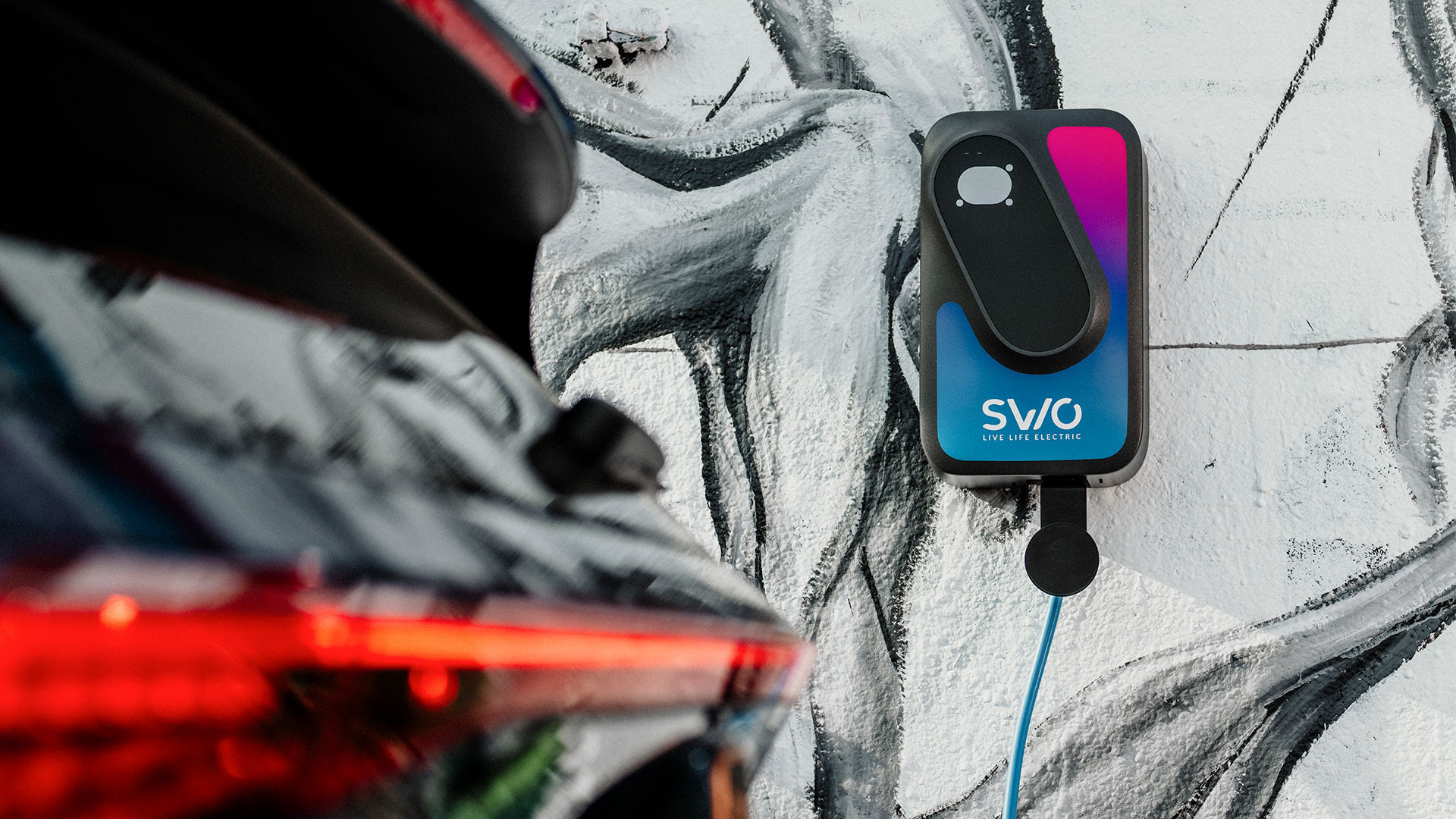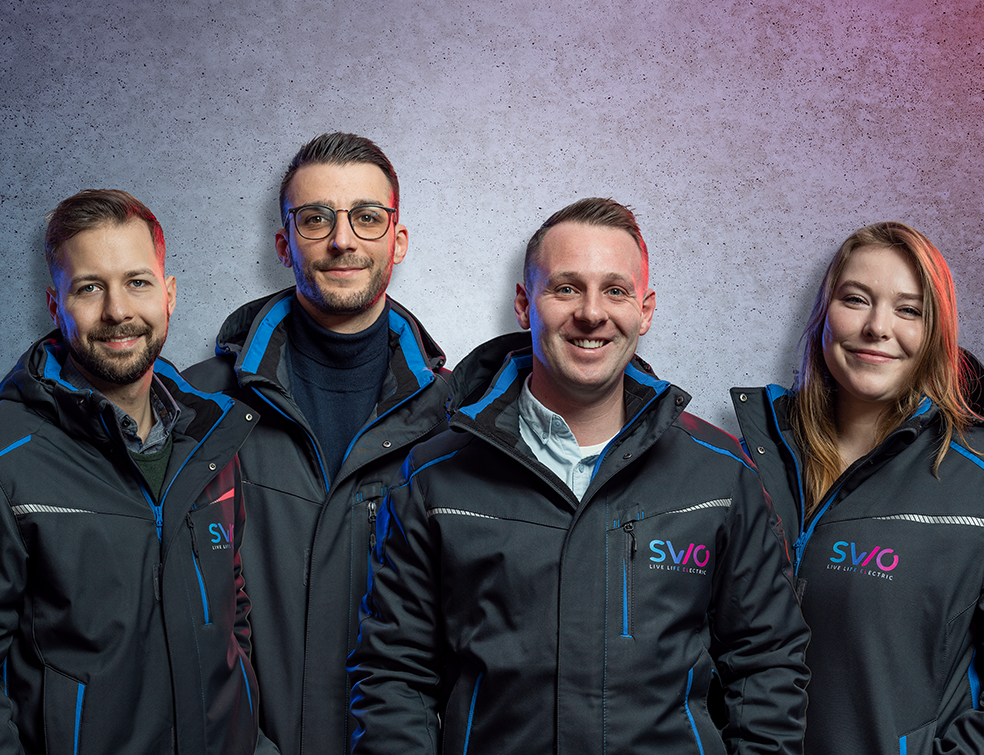As e-mobility steadily becomes part of everyday life, Luxembourg is emerging as a hub for innovation, accelerating this transformation. One of the key players driving this shift is SWIO.
Founded in 2020 by Losch Group, SWIO formalised a joint venture with SOCOM in 2023 to reinforce its strategic development in EV charging solutions. Its mission is to deliver an intelligent, integrated, and resilient charging ecosystem. Forbes talked to SWIO’s Coordinator Martin Rassel to find out more.
A Comprehensive, All-in-One Charging Approach
Far from limiting itself to hardware distribution, SWIO embraces a holistic model that covers the entire value chain. It supplies reliable and interoperable equipment, including EVBox and ETREL charging stations, and offers full technical support for on-site installations in both residential and corporate settings. Maintenance and supervision are managed remotely via a centralised platform that ensures optimal performance, safety, and uptime.
To complement this, SWIO also provides tariffing and roaming services, allowing users to access public charging infrastructure easily. This one-stop-shop model significantly simplifies the transition to e-mobility, offering a user experience comparable to that of smartphones: intuitive, fast, and consistently available charging wherever needed.
Tailored Solutions from Private Homes to Multi-Unit Residences
Having a home charging station remains the simplest, safest, and fastest way to power an electric vehicle. While standard domestic sockets may offer a temporary solution, they are not designed for prolonged, continuous use and are not authorised by grid operators. Marvin Rassel, SWIO Coordinator, notes that charging via a wallbox is five times faster than using a standard socket.
Before any installation takes place, SWIO conducts a technical audit to assess feasibility and inform the relevant grid operator. In most cases, a standard or smart charger can be installed without requiring major electrical upgrades. Some models, equipped with dynamic load management, are capable of automatically adjusting power output based on the building’s available capacity. SWIO offers customers the option of a standard wallbox or a smart wallbox with access control and remote monitoring with possible subsidies. These charging solutions can also be combined with solar panel installations to maximise on-site energy consumption.
In shared residences, installation projects are more complex as they require the approval of the homeowners’ association. Network dimensioning becomes a crucial aspect, and intelligent load balancing solutions enable several vehicles to charge simultaneously by dynamically distributing available energy. The objective is clear: to guarantee maximum autonomy for all users at the lowest possible cost.
“Charging via a wallbox is five times faster than using a standard socket.”
A Shifting Energy Landscape: New Tariff Structure from January 2025
Managing energy consumption is becoming increasingly strategic, particularly as Luxembourg prepares for a major electricity tariff reform effective from 1 January 2025. Although many consumers feel that electricity prices are rising, this perception is largely due to two key developments.
Firstly, the gradual reduction of government subsidies introduced in 2022, which were designed to artificially cap prices, will lead to limited but real price increases. From 2025, these subsidies will be lowered, capping increases at 30% instead of the initially projected 60% without state support. Secondly, a new tariff structure approved by the Luxembourg Regulatory Institute (ILR) will introduce billing that is partly based on the reference capacity assigned to each consumer. This change means that households equipped with electric vehicles or heat pumps—both high-energy consumers—could see their network-related charges increase by between 25% and 33%, even if the per-kilowatt-hour cost remains relatively stable.
In this evolving environment, smart charging solutions are becoming critical. By enabling charging to be shifted to off-peak hours, optimising self-consumption, and avoiding penalties linked to peak demand, these systems allow households and businesses to better manage their energy costs and protect themselves from future increases.
Tailored Solutions for Businesses and Logistics
SWIO also addresses the needs of professional fleets, logistics centres, and companies operating across multiple sites, where availability, supervision, and energy optimisation are essential. In response to these requirements, SWIO is developing mobile charging units that are ideal for temporary sites such as construction projects, hybrid infrastructures that combine solar energy with grid power, and interconnected systems that integrate seamlessly with fleet management platforms and corporate billing systems. This suite of solutions enables businesses to maintain operational efficiency while aligning with their sustainability goals.

A Cross-Border and European Vision
Luxembourg is rapidly positioning itself as a living laboratory for e-mobility innovation. In 2023, 25% of all new vehicle registrations were electric, compared to just 10% in 2021. The Chargy network already includes approximately 1,600 public charging points, and SWIO is aiming to add 1,000 more in the short term. Through its European charging card, which is compatible with charging networks in France, Belgium, and Germany, SWIO is supporting the growing community of cross-border commuters, offering seamless, connected, and borderless electric mobility.
A Key Player in the Energy Transition
By combining technological expertise, strong local roots, and a clear European vision, SWIO is positioning itself as a strategic enabler of intelligent e-mobility. Its ability to digitise the user experience, integrate technical and regulatory requirements, and cater to a wide range of users—from private individuals to large enterprises—makes it a vital driver of the transition towards more sustainable, efficient, and resilient mobility solutions.

